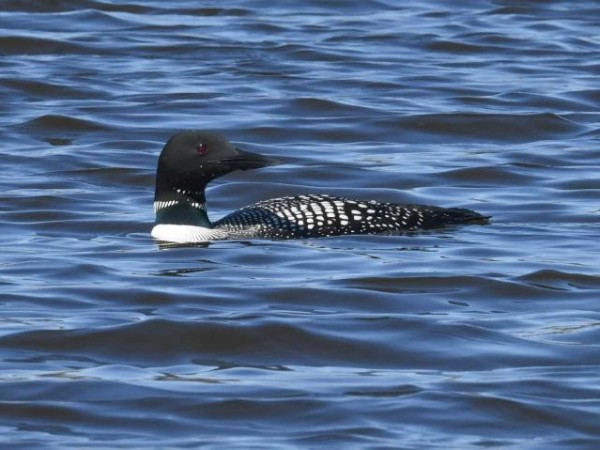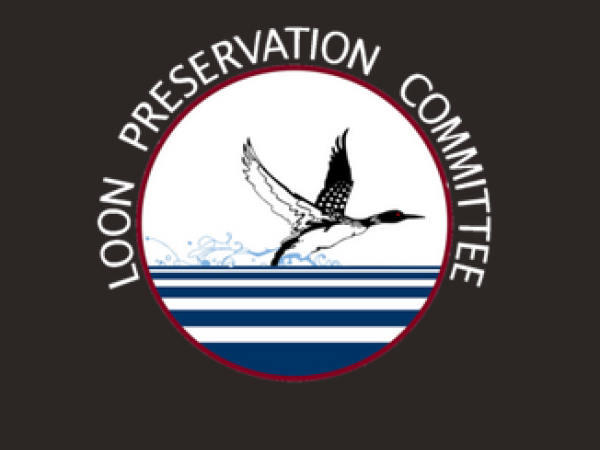Loon Preservation Committee: Loon Facts of the Month -- August
Egg Shell and Membrane Removal
After the hatch of their first chick, it is very common for adult loons to remove the membrane from the first hatched egg and any attached large pieces of eggshell from their nest. This behavior has been widely documented here in New Hampshire, both on LPC's Live Loon Cams (see video below) and by wildlife photographers, as well as by biologists in the field. Why do loons remove shells and membranes from their nests when many other bird species do not perform this behavior? The removal of eggshell fragments from loon nests may occur in part due to the asynchronous hatch of the two chicks. Until the second chick hatches, the loons brood their first chick on and around the nest. While they may take it into the water for brief swims or to feed it, the first chick ends up spending a lot of time on the nest while the family waits for the hatch of the second chick. Loon eggs and newly-hatched loon chicks are brown in color, and as such, they blend in with their surroundings on the nest. The egg membrane and the inside of eggshells, in contrast, are a creamy white color. That makes them much more conspicuous and, if left on the nest, could increase the chance of nest predation. Therefore, it is believed that in removing egg membranes and large eggshell pieces from the nest, adult loons may be protecting their chick and the second egg from being easily noticed by predators. Interestingly, while many loons perform this behavior, not all do. LPC staff have documented several nest sites at which both membranes have been left on the nest by the loons. It could be that the chicks at these particular nest sites hatched more closely together and thus both left the nest at the same time, reducing the need for membrane removal. Or, it could be that there is individual variation between loons with regards to whether or not they perform this behavior.
Watch this video to see a male loon removing an eggshell from the nest.
--shared courtesy of Loon Preservation Committee loon.org


